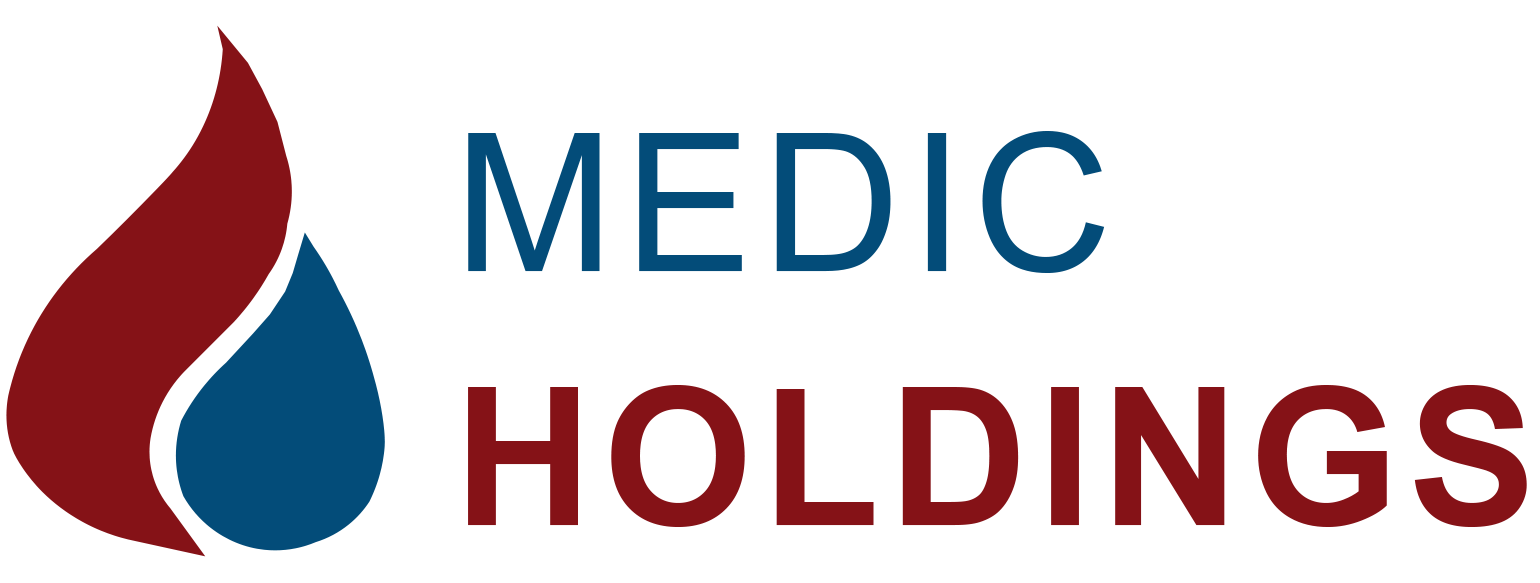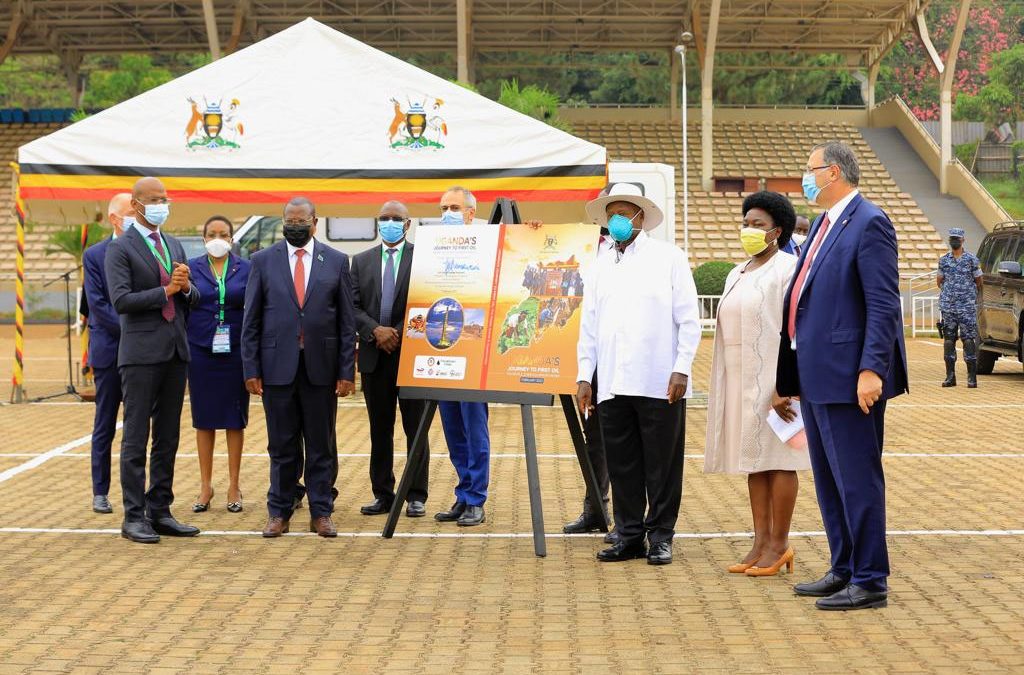On February 1, 2022, Uganda achieved one of the most significant milestones in its energy history by announcing the Final Investment Decision (FID) for its long-awaited oil development projects. This moment unlocked a cascade of economic opportunities, valued at over $7.16 billion, spanning upstream development, pipeline construction, and refinery preparation.
Most notably, $1.8 billion—a substantial 25% of this value—was earmarked for local Ugandan firms as part of a deliberate strategy to promote local content, job creation, and capacity building. For companies like Medic Holdings Limited, this announcement signaled the dawn of a new era of commercial engagement and regional growth.
This article offers an in-depth exploration of the FID, breaking down its components, stakeholders, economic implications, and how local firms are strategically positioned to benefit—particularly those in oil marketing, logistics, infrastructure, and supply chain services.
What Is a Final Investment Decision (FID)?
A Final Investment Decision is the last major greenlight by investors and project sponsors before actual implementation begins. In Uganda’s case, it meant that the international oil companies (IOCs) and government had fully committed to financing, developing, and delivering oil production, processing, and export infrastructure.
Uganda’s FID was signed by:
-
TotalEnergies EP Uganda
-
CNOOC Uganda Ltd
-
Uganda National Oil Company (UNOC)
The agreement covers a comprehensive plan to bring Uganda’s oil reserves in the Albertine Graben into commercial production.
Breakdown of the $7.16 Billion Investment
The FID unlocks financing for a wide range of oil-related infrastructure across three core project areas:
1. Upstream: Tilenga and Kingfisher Fields – $4 Billion
-
Tilenga (TotalEnergies): Located in Buliisa and Nwoya districts. Development of 426 oil wells on 31 well pads.
-
Kingfisher (CNOOC): Located in Kikuube district. Involves 31 wells on 4 well pads.
Both projects include drilling, roads, water abstraction facilities, feeder pipelines, and central processing facilities.
2. Midstream: East African Crude Oil Pipeline (EACOP) – $3.5 Billion
-
1,443km heated pipeline from Hoima (Uganda) to Tanga (Tanzania)
-
Joint venture between TotalEnergies, UNOC, and TPDC (Tanzania Petroleum Development Corporation)
-
Capacity of 216,000 barrels per day
3. Downstream (Future Projects):
-
Uganda Oil Refinery Project: A proposed 60,000 barrels-per-day capacity refinery in Hoima
-
Industrial parks and energy-based manufacturing anticipated around the oil region
$1.8 Billion Reserved for Local Participation
One of the most revolutionary components of Uganda’s FID was the commitment to local content. The Petroleum Authority of Uganda (PAU) mandated that at least 30% of contracts in specific categories be awarded to Ugandan companies.
These categories include:
-
Transportation and logistics
-
Civil works and construction
-
Catering and hospitality
-
Security and maintenance services
-
Environmental management
-
Waste disposal
-
Welding, fabrication, and support equipment
-
Fuel supply and depot operations
This is where Medic Holdings Limited, with its strong roots in bulk petroleum supply, logistics, and regional energy distribution, is uniquely positioned to contribute and benefit.
Opportunities Created by the FID for Local Companies
1. Logistics and Fuel Supply
Over the next five years, the oil projects will generate demand for:
-
Diesel and petrol for machinery
-
Lubricants and oils for engines
-
Fuel for generators and power systems
-
Logistics services for moving people, equipment, and materials
With our extensive fleet and regional networks, Medic Holdings can serve both upstream contractors and pipeline operators by ensuring uninterrupted, timely supply of fuel and support products.
2. Warehousing and Storage Solutions
Oil projects require:
-
Storage yards for equipment
-
Fuel depots for operational readiness
-
Strategic warehouses near project sites
Medic Holdings can provide or invest in warehousing near the Tilenga and Kingfisher projects, or near the EACOP corridor, creating logistical synergies.
3. Safety and Environmental Services
As outlined in the EACOP Bill and Petroleum Act, there is emphasis on:
-
Safe fuel handling
-
Emission management
-
Waste disposal
-
Spillage response
Our health, safety, and environmental protocols give Medic Holdings a strategic edge in offering compliant fuel delivery and environmental safety services.
Impact on the Ugandan Economy
1. Job Creation
The oil projects are expected to create:
-
Over 160,000 direct, indirect, and induced jobs
-
14,000 jobs from Tilenga alone
-
Thousands more in transport, catering, hospitality, and security
These jobs will stimulate local spending, grow SMEs, and contribute to national tax revenue.
2. Industrial Growth
Local businesses will scale up to meet oil sector demand, leading to:
-
New fabrication yards
-
Transport fleets expansion
-
Domestic manufacture of consumables (e.g., PPE, pipes, fuel tanks)
Medic Holdings, with its proven capacity and Dubai support via Meedek PTL FZE, can position itself as a link between international suppliers and local consumers.
3. Skills Development
The FID mandates skills transfer through:
-
On-the-job training
-
Local staffing quotas
-
Contractor-subcontractor mentorships
This will develop Uganda’s energy workforce for the long term and benefit companies like Medic that prioritize employee capacity building.
Challenges and Mitigation Strategies
While the FID is a major step forward, challenges persist:
1. Local Capacity Gaps
Not all local firms may have the technical or financial capacity to take on large contracts. Solution: Partner with international firms via joint ventures and consortia.
2. Corruption and Inefficiency
Procurement systems must remain transparent. The Petroleum Authority of Uganda (PAU) has committed to monitoring all procurements.
3. Environmental Concerns
Communities and global environmental groups are concerned about biodiversity risks and carbon emissions. Developers must comply with IFC Performance Standards and national environmental laws.
The Role of Meedek PTL FZE – Supporting Global Procurement
The launch of Meedek PTL FZE in Umm Al Quwain Free Trade Zone (UAE) gives Medic Holdings a strategic procurement hub for:
-
Sourcing equipment, fuel additives, storage systems, and construction materials
-
Liaising with banks and insurers for international financing
-
Connecting global suppliers with East African projects
The FID opens up procurement opportunities worth billions—and Meedek PTL FZE is well-positioned to service these opportunities while offering logistical coordination between Dubai and Uganda.
Policy Framework Supporting the FID
Several laws and policies support the FID’s implementation:
-
The Petroleum (Exploration, Development and Production) Act, 2013
-
The Petroleum (Refining, Conversion, Transmission and Midstream Storage) Act, 2013
-
National Content Regulations, 2016
-
EACOP (Special Provisions) Act, 2021
-
Environmental Impact Assessment Regulations
These laws promote:
-
Maximum national participation
-
Compliance with safety and environmental standards
-
Dispute resolution and arbitration processes
-
Protection of investment under international law
Global Reactions and Implications
The FID has attracted global attention:
1. Investor Confidence
-
Renewed interest in Uganda from international oil firms, banks, and EPC contractors
-
Proof that Uganda can structure large, profitable energy deals
2. Regional Influence
-
Positioning Uganda as a petroleum hub in East and Central Africa
-
Encouraging neighboring countries (e.g., South Sudan, DRC) to explore joint pipelines
3. Energy Diplomacy
-
Strengthened economic ties with France (via TotalEnergies) and China (via CNOOC)
-
Increased visibility in OPEC and non-OPEC discussions
Medic Holdings’ Strategic Response to the FID
1. Market Expansion
We are exploring:
-
Regional depots along the EACOP route
-
Long-term fuel supply contracts with EPC contractors
-
Participation in tender frameworks for supply and logistics
2. Skills Development
Investing in:
-
Training programs for fuel handlers, mechanics, and drivers
-
Safety certification for petroleum operations
-
Partnerships with local vocational institutes
3. Sustainability and Compliance
-
Implementing fleet upgrades to reduce emissions
-
Building capacity in spill management and environmental compliance
-
Enhancing digital tracking for supply chain transparency
Conclusion: A Future Fueled by Opportunity
The announcement of Uganda’s Final Investment Decision in 2022 is not just an event—it’s a transformational shift that will define the next 30 years of East Africa’s energy landscape. It reflects confidence in Uganda’s legal, economic, and operational environment, and more importantly, it demonstrates the government’s commitment to inclusive development.
For companies like Medic Holdings Limited, this milestone provides a rare opportunity to:
-
Grow alongside the region’s largest infrastructure project
-
Build partnerships with international and regional players
-
Contribute meaningfully to Uganda’s development journey
As Uganda moves toward first oil by 2025, we stand ready to fuel progress—literally and figuratively—across all stages of the oil value chain.
Get in Touch with Medic Holdings
📞 Call Us:
+256 782 097098 | +256 702 097098
📧 Email:
[email protected]
🌐 Offices:
Uganda (HQ) | Meedek PTL FZE – Dubai, UAE

